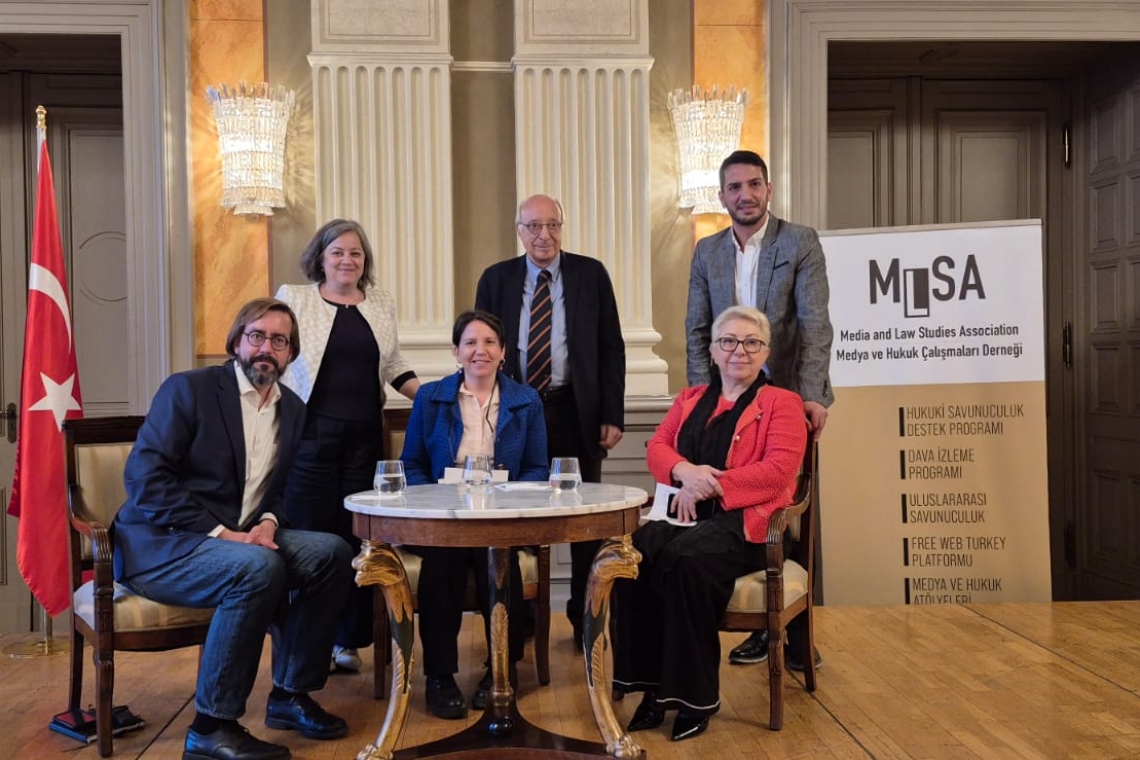A panel marking the 75th anniversary of the European Convention on Human Rights (ECHR) and 3 May Press Freedom day brought renewed focus to the challenges facing press freedom in the digital age, hosted by Germany’s Consulate General in Istanbul and Turkey’s Media and Law Studies Association (MLSA) on May 16.
The event, titled Press Freedom in the Digital Age, took place at the German Consulate building in Istanbul. Opening remarks were delivered by Dr. Regine Grienberger, Germany’s Consul General in Istanbul, and Veysel Ok, Co-Director of MLSA. Keynote speaker Rıza Türmen, a former judge at the European Court of Human Rights (ECtHR), was joined by economist and academic Nesrin Nas and journalist Christian Mihr, who also spoke during the panel. MLSA Co-Director Barış Altıntaş moderated the discussion.
“Digital threats are targeting media workers”
Rıza Türmen began his address by identifying himself as “a person of the 20th century,” emphasizing the profound ways in which technological transformation has impacted both social life and press freedom. “It’s not possible to be anti-technology,” he said, “but is every technological advance truly progress? Splitting the atom was a scientific breakthrough, but it also led to the atomic bomb.” Türmen warned of the double-edged nature of technology.
He acknowledged that digitalization has increased speed and accessibility in journalism but also introduced new threats. Citing Turkey’s 2007 Internet Law No. 5651, Türmen noted that amendments were made during the 2013 Gezi Park protests after the government was unable to control the flow of information. “Access was blocked without court orders. We lived through a period when Wikipedia was banned — a practice that was virtually unprecedented elsewhere in the world,” he said.
“Free media is essential for democracies”
Speaking at the panel, economist Nesrin Nas highlighted how authoritarian governments use media not just for censorship but also as a tool to exert economic control. “We are in a media environment where truth is vanishing and transparency is in decline. In an era where click rates outweigh content quality, digital media has become a tool not only for producing news but also for rendering opposition invisible,” she said.
Nas stressed that a free and pluralistic media is indispensable not only for freedom of expression but also for the functioning of democracy.
“Journalism must adapt to survive”
The final speaker was Christian Mihr, Director of Human Rights Impact at Amnesty International Germany. Mihr emphasized that journalism cannot survive without adapting to societal and technological changes. “We see how journalists continue to produce news in creative ways even under censorship,” he said. “The ECtHR remains one of the essential institutions protecting freedom of expression.”
The event concluded with a question-and-answer session.



